- March 30, 2024
5 Reasons Why Cats Lick When Their Back Is Scratched
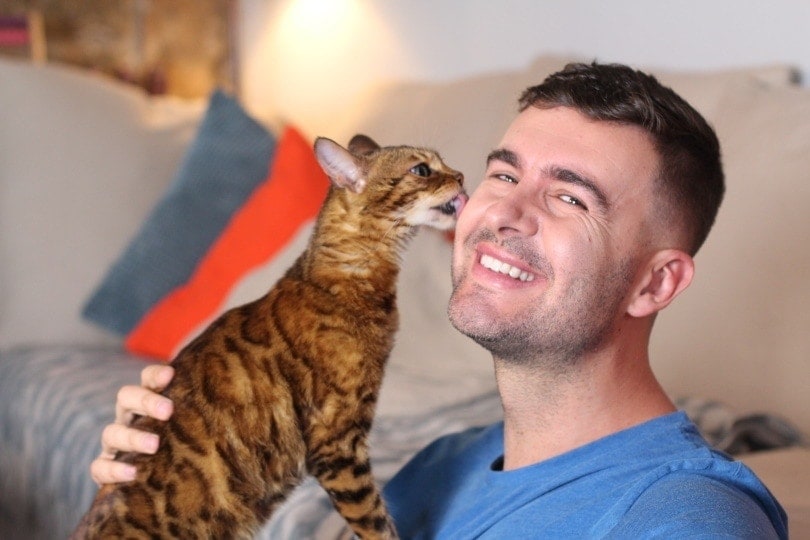
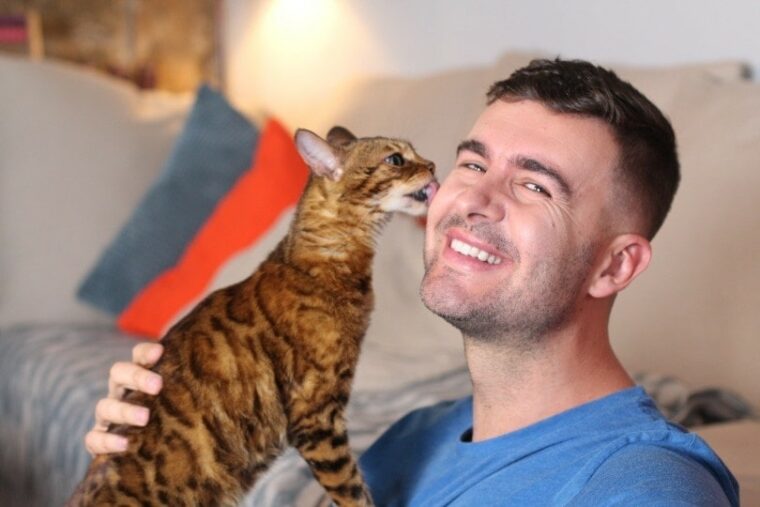
Our cats try to speak to us in a myriad of ways. If you notice your cat trying to lick the air while you’re petting them, it might come off as a strange behavior. After all, what could they possibly be trying to accomplish with this?
In this article, we will explore a few reasons why your cat might be licking the air every time you scratch their back. Let’s decode this feline oddity.

The 5 Reasons Why Cats Lick When Their Back Is Scratched
1. Mutual Grooming
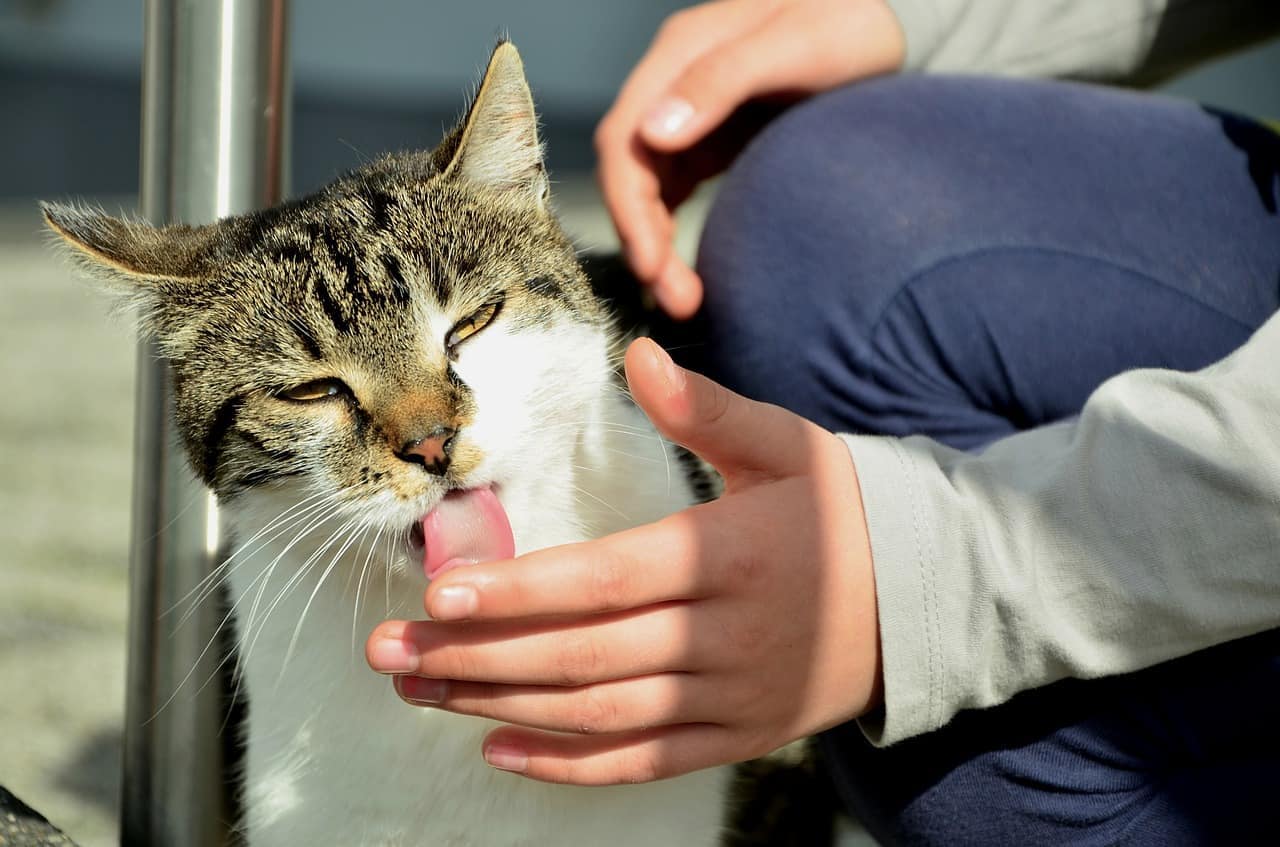
Even though they might not be doing the most fantastic job at it, your cat might be trying to groom you mutually. After all, those back scratches feel awfully good, and they just want to return the favor. Grooming is an essential part of cat socialization and can strengthen bonds.
It’s no wonder that they want to groom their human counterparts. This is one way that they can express their love language. Isn’t it flattering?
2. Scratching an Itch
You might just be really getting to a sweet spot your cat can’t reach. If that spot hasn’t been groomed in a while or is feeling particularly itchy, it could be very relaxing and satisfying for your cat to scratch that itch finally.
If this is the case, your cat might show other signs in body language to say they love the attention. Some of these include purring, bunting, and spinning. If your cat just seems to be enjoying themselves, no intervention is necessary.
3. Skin Condition
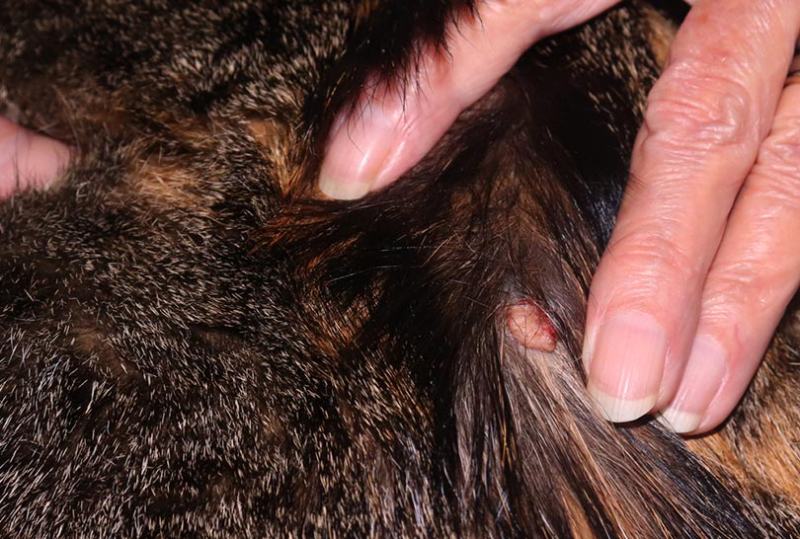
In some cases, your cat might have a skin condition. If the area is tender, itchy, or otherwise uncomfortable, it can cause them to lick the air in response.
Common skin problems in cats include:
- Ringworm: Ringworm is an itchy infection on the skin that can cause hair loss and circular skin inflammation.
- Mange: Sarcoptic mange comes from mites and can cause extreme itchiness, rashes, and hair loss. It is highly contagious.
- Fleas: Fleas are a very pesky problem. If you still need to treat your kitty this year, they might be suffering a few bites.
You should visit your vet if you notice any other signs like redness, hair loss, or excessive itching. They can examine the problem area and advise accordingly. If your cat has a skin issue, they might require antibiotics or other treatments.
4. Discomfort
If your cat is licking the air, it could be due to discomfort. While it might not be outright pain or underlying disease, the spot might be tender for one reason or another. This sort of issue is particularly common on older cats. Once the body starts to wane in years, mobility becomes more of an issue.
If your cat has any muscle or joint issues, like arthritis, they might feel uncomfortable when you pet them in certain spots. Such issues can cause outright pain if the issue is severe enough. So, if your cat is getting up there in years or has certain health conditions, it might feel not-so-great.
If your cat doesn’t like it, they may vocalize, swat, or run away.
5. Pain
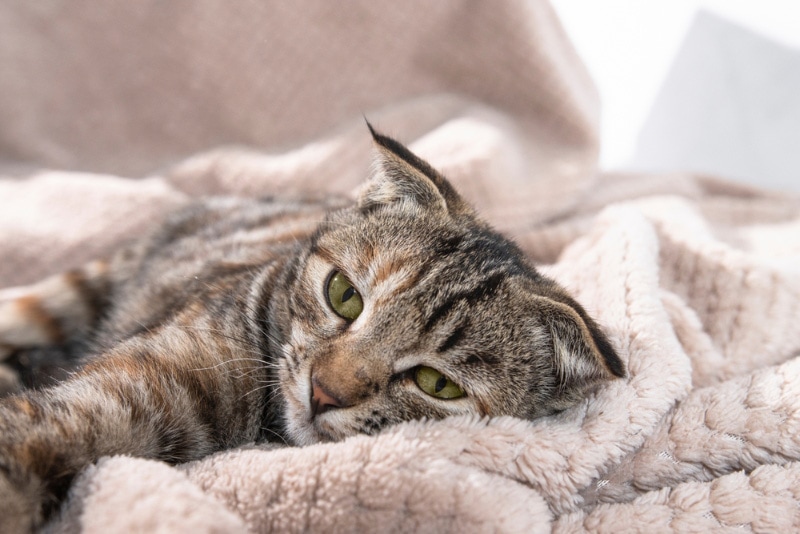
If your cat seems bothered or vocalizes while licking the air, you might be causing a little bit of pain. This can happen for numerous reasons, depending on the location. Most of the time, your cat has likely hurt a muscle or has some other pain point on the body.
If you think your cat is in pain, they should never be ignored. While really simple in most cases, it can be very problematic or even dangerous to let it go unnoticed. It’s not worth the risk.
Some issues that could cause back pain include:
- Infection
- Inflammation
- Vertebral disk disorders
- Arthritis
- Injury
A cat in pain might shy away from physical contact or avoid being pet. They might also run away or get aggressive when you touch them.

When Concerned, Call the Vet
If your cat just started this behavior, it would be a good idea for you to speak with your vet about it. While getting advice on the Internet is a good idea, the sound advice of a trained professional who personally knows your cat’s medical history is the best.
If you suspect anything is wrong, they will likely schedule you an appointment to come in for evaluation.

Conclusion
If you feel like your cat is sick, don’t hesitate to get them to your veterinarian. If the behavior is new or just started, it can be alarming, to say the least. In this situation, your vet will take a look at potential problems to determine the underlying cause of the change. Sometimes, it might just be a fluke, and your cat is completely well.
In other cases, your cat might have muscle pains, infections, or a physical injury of some sort. If you are petting your cat and they’re licking the air accompanied by any concerning signs, early examination and treatment are advised.
Featured Image Credit: Denis Val, Shutterstock
Tags
What do you think?
Related Articles

New Puppy Checklist: Gear You’ll Need for Your New Dog
Getting a new puppy is really exciting, but before you welcome them home, it’s important to prepare your space for them. Since puppies need a

How Big Do Mini Poodles Get? Vet Reviewed Average Weight & Growth Chart – Dogster
The information is current and up-to-date in accordance with the latest veterinarian research. Learn more » When you buy a Miniature Poodle, you might not

Can Police Dogs Smell Nicotine? Vet Verified Facts & Info – Dogster
The information is current and up-to-date in accordance with the latest veterinarian research. Learn more » While cigarette sales have been declining steadily for decades,

How Old Is 5 in Dog Years? Vet-Approved Guide to Each Size of Dog – Dogster
The information is current and up-to-date in accordance with the latest veterinarian research. Learn more » A common method for calculating a dog’s age is

